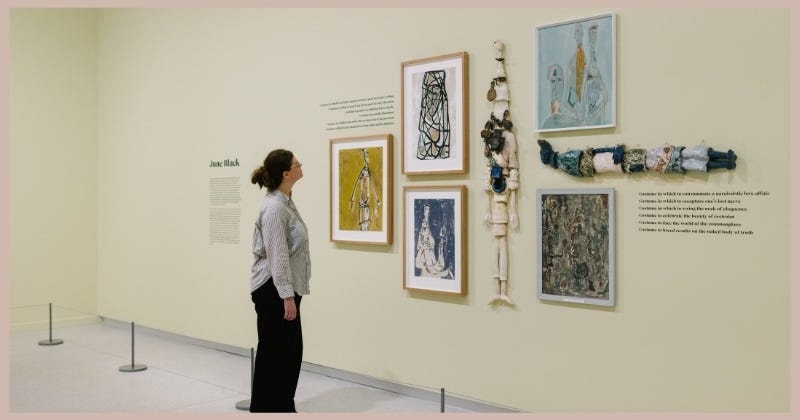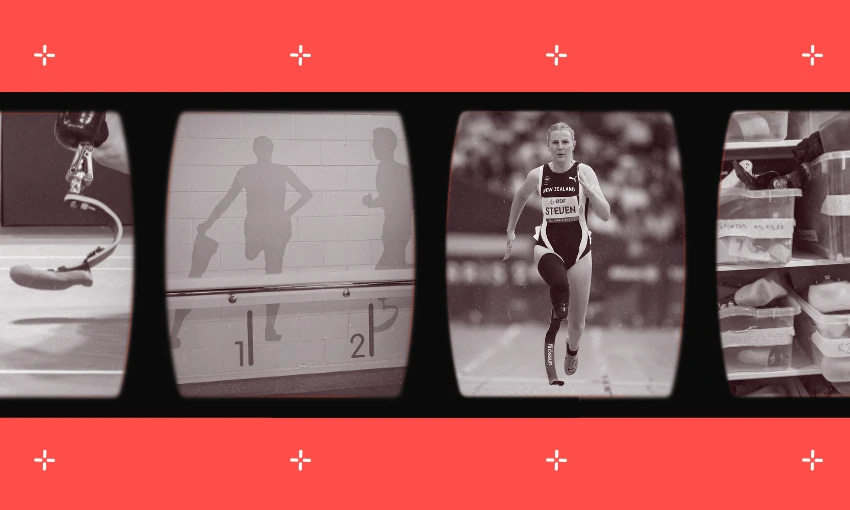Paralympics appreciation vs everyday apathy
A king is buried, New Zealanders in Ukraine and the end of the Paralympics
Kia ora and welcome to The Weekend with Madeleine Chapman
The Paralympic Games end tomorrow after nearly two weeks of incredible athletic feats. On a purely results basis, New Zealand’s results have been a bit disappointing. As of writing (Friday), we’re yet to win a gold medal and are placed 61st out of 74 on the medal table, with four silvers and three bronzes. In 2020, New Zealand Paralympians took home 12 medals (six of them gold). There is a fine balance between being encouraging and being patronising, but ultimately, everyone in Paris is a world class para athlete and vying for gold, so there’ll surely be some disappointed people in the NZ camp this week.
But despite the tally, the 2024 Games have produced some incredible moments. Anna Grimaldi winning a bronze in the T47 women’s 100m with a personal best (and Oceania and New Zealand record) is a standout. In fact, it’s been the track and field para athletes who have shone particularly bright, with shot put medallist Holly Robinson still to compete in her preferred event (javelin).
Beyond the New Zealand team, the “most online” Olympics has turned into the “most appreciated” Paralympics thanks to impressive clips of blind long jumpers using vocal guides as markers and archers hitting bullseyes after releasing arrows with their mouths. The Paralympics have grown every year and will continue to grow, despite disabled people still struggling for support and awareness in their home countries, including here.
New Zealand para athletes left for Paris just months after a new report showed that someone with a disability could pay up to $5,500 more a year due to recent government policies – like increases in public transport fares and the return of prescription co-payments – that disproportionately impact the disable community. Not to mention the sudden changes to Whaikaha funding that would limit the funding available to disabled New Zealanders.
So yes, the New Zealand Paralympics team has not brought in the medal results we’d hoped for. A disappointment that pales in comparison to that felt regularly by every disabled New Zealander just trying to live their life.
This week on Behind the Story
Introducing The Spinoff’s very first Help Me Hera live event at Q Theatre in Auckland. After more than 80 columns, Hera’s advice spans the spectrum of human troubles. For our live event, we revisited three problems from the archives, talked about Hera’s response, and heard updates from the callers themselves.
Note: the callers emailed in their updates so the voices you hear won’t be their actual voices. Instead you’ll hear some of the greatest voice talent that works in the Spinoff offices.
A curated tour of Modern Women: Flight of Time
A major, free-admission exhibition at Auckland Art Gallery Toi o Tāmaki, Modern Women: Flight of Time explores the trailblazing work of Aotearoa New Zealand’s women artists during the middle decades of the 20th century. From canonical names like Rita Angus and Frances Hodgkins to lesser known – but trailblazing – painters, sculptors and textile artists, Modern Women is a celebration of women artists’ contribution to modern art in NZ.
Read the story here and visit now!
Exclusive report: On the ground with the New Zealanders in Ukraine
This week’s cover story was reported on the ground in Ukraine by contributor Tasha Black. The frontline there is unlike any other. It is first-world-war trench warfare with technology. Mice run through bunkers, gnawing on military ration packs, while enemy drones circle the skies like hawks. But no one knows for sure how many New Zealanders are fighting in Ukraine, though one estimate put the number at somewhere between 15 and 25. Former New Zealand soldiers come to Ukraine initially, at least in part, to test their skills on the battlefield. But over time, after serving alongside Ukrainians and seeing atrocities committed against civilians, their connection to the country deepens, as does their sense of duty. Black spends time with three of them, and canvases the Ukraine landscape of sunflowers and landmines, soldiers and summer dresses.
The shade in the shadow of Taupiri maunga
Taupiri maunga has served as a sacred burial site for thousands of years, and will be the final resting place of Kīngi Tuheitia. The maunga holds major cultural significance for Waikato Tainui, including Lyric Waiwiri-Smith, and serves as a gravesite, or urupā, for many within the iwi. The maunga is an ancestor, an extension of the iwi’s existence forged by the bones of their tupuna buried there. Waiwiri-Smith, reports from its shade. She notices that over the past week, it's seen something of a facelift – widened footsteps, new footpaths, and a general clean-up of the grounds – to ensure Taupiri is fit for a kīngi’s burial. There, he joins his people and ancestors as an equal.
Jess Hong from 3 Body Problem on her rapid rise and being painfully shy
Growing up, Jess Hong thought she would be a 'hermit, novelist or poet' – now she's a lead actor in one of Netflix's buzziest shows. Hong joined Kiwibank's This is Kiwi podcast to talk about her breakout moment, and what it's like being back in Aotearoa after the wildness of Hollywood. Read an excerpt from the interview on The Spinoff now.
Limbs without limits: How New Zealand Paralympians get geared up for glory
Prosthetic limbs are a fascinating part of the Paralympics for those watching at home: seeing advanced pieces of technology totally integrated with the human body in a way that, for example, the phone that feels glued to your hand could never be. Whether it’s for a Paralympic sprint or a simple stroll to the shops, a prosthetic limb is as individual as the person who wears it. Shanti Mathias visited the Auckland workshop where they’re created, customised and fitted, finding out there’s increasingly a movement to decorate prosthetics and put them on display. And while advances in technology have increased the possibilities, that doesn’t mean everyone always wants the most advanced limb.
The stories Spinoff readers spent the most time with this week
Liam Rātana’s excellent explainer on the behind-the-scenes machinations involved in choosing the new Māori monarch, Ngā Wai Hono I Te Pō Paki
This week’s Cover Story: Tasha Black on the ground with the New Zealanders fighting in Ukraine
Tara Ward with a welcome back to one of the best dramas on television
Apropos of nothing, Hayden Donnell ranks the best times and places to eat toast
A 35-year-old apartment owner with a ‘weakness for pastries’ shares the ins and outs of her finances in this week’s Cost of Being
Recommended reads for your weekend
Emily Draper looks into the lesbian late-bloomer phenomenon, and reassures us it’s never too late
Artists Emily Hartley-Skudder and Pinky Fang have collaborated on a juicy photo essay documenting vintage cosmetics which were made in Palestine and found in 1970s Hastings
Liam Rātana takes a look at our new monarch and explains what’s next for the Kīngitanga
Shane Jones has turned 65 and received NZ First’s crowning initiative: the SuperGold Card. Lyric Waiwiri-Smith wishes him a happy birthday
The second chapter of our etiquette guide is here: How to walk through a door
If you need a good anthem with a catchy hook to sink a few beers to, look no further than Blindspott's perfect weekend playlist
All 210 tasks from Taskmaster NZ, ranked from worst to best. Yep, all of them
Gabi Lardies taste tests the night markets’ beloved Cook Island doughnuts. Turns out they are not like Argentinian facturas
Auckland’s secondhand bookshops, ranked and reviewed by everyone's favourite book-worm Shanti Mathias.
Birthday week is coming!
The Spinoff turns 10 next week and we’ll be partying with birthday content, chats, articles, games and a competition for some very Spinoff prizes.
We wouldn't be here today without the support of our readers. Help us celebrate this mighty achievement by gifting us your support today.
Reader feedback of the week
“I disagree that gold standard can and should be met on push doors. Too often, the angle and upper body strength required to hold a push door open from the inside means either the door isn't fully opened or the gentleman in question is standing at hinge or closer, forcing a weirdly close walk past. On a push, go silver standard and hold it sensibly on the outer edge. Gold standard should be reserved for pulls.”
“I'm autistic so if I didn't make the toast in just the right way, I'm not eating it and there's no chance of me eating toast made by someone else. After the birth of my first baby, my midwife made marmite on toast (a tricky one to get right) and I can confirm it was the greatest toast of my life. It wasn't hot and the ratio of marmite to butter wasn't perfect but none of that matters when you spent the afternoon and evening pushing an entire human from your body.”
— Kirsty
Thanks for reading.
— Madeleine Chapman

















🤔Forget GOLD medals - the extra obstacles, physical, emotional, financial etc. that these amazing athletes have to negotiate ON TOP OF the dedication, training & sheer force of will required to even be at the Olympics 👏🏾👏🏾👏🏾👍🏾 - this is one occasion where even being there is the ultimate achievement - thank you SPINOFF for all the great coverage.
🙋🏽♀️I had the great good fortune to have a major leg break which kept me in a wheelchair, on crutches, severely inconvenienced for several months, because it soon became apparent to me how lucky I was to know that this was temporary & after a period of physio etc. there would be "normalcy". I have never lost that memory, especially now when seeing all the egregious policy decisions by this coalition govt which will make the lives of people with any kind of disability that bit harder - unnecessarily and cruelly.🤬 So proud of our athletes for showing the able-bodied amongst us what is possible given adequate support - now let's continue to fight to expand that to the non-athletic eh? 🤷🏾♀️